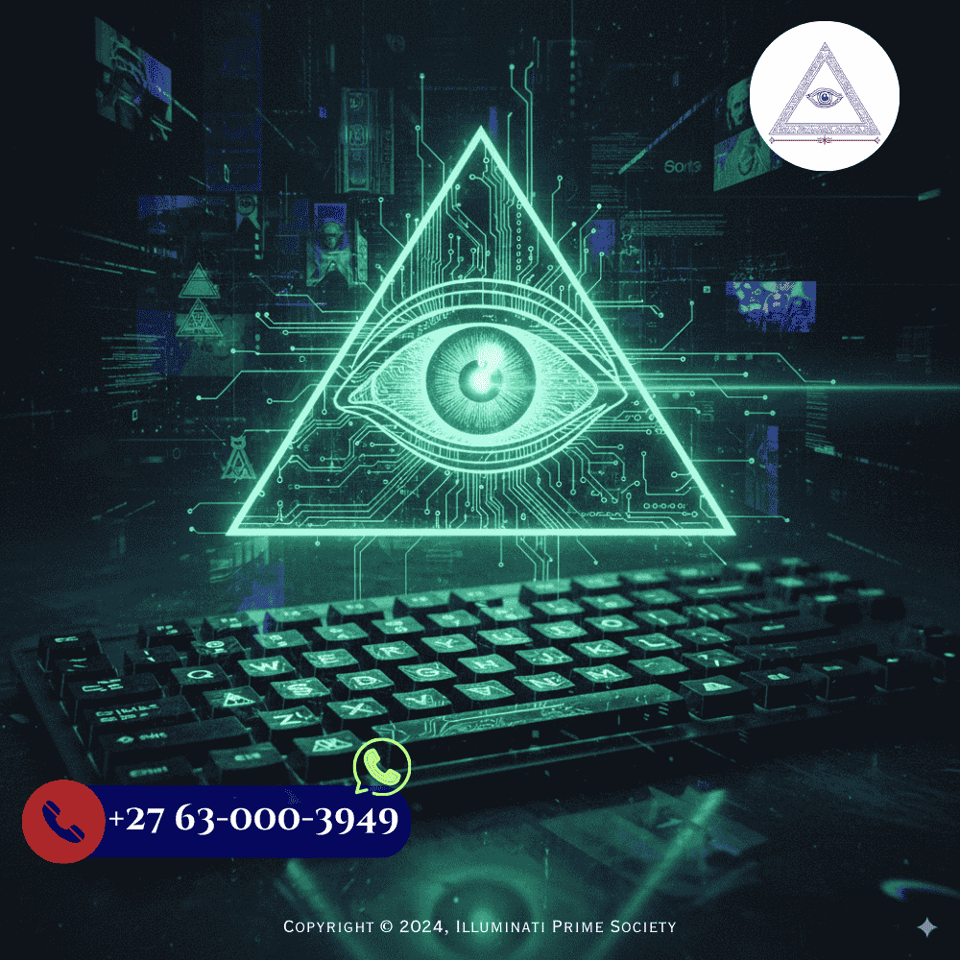Unearth the mysteries behind one of the most enduring conspiracy theories of all time and discover...
How Illuminati Conspiracy Theory Shapes Online Discussions

The Illuminati conspiracy theory has not only survived but thrived in the digital age, influencing countless online discussions and communities.
To guide you deeper into the Illuminati ecosystem, talk to us:
-
“Ready to share your success story?” → Contact Form
-
“Learn directly from Agent Alexander Sterling” → Agent’s Blog
-
“Speak privately about your path” → Talk to Agent on WhatsApp ✅
- “Explore more member journeys” → /illuminati-member-testimonials
- "Illuminati in Modern Culture" → /illuminati-modern-culture
The Origins and Evolution of the Illuminati Conspiracy Theory
The Illuminati conspiracy theory traces its origins back to the late 18th century with the formation of the Bavarian Illuminati, a secret society founded by Adam Weishaupt. Initially, the society aimed to promote Enlightenment ideals and combat religious and political oppression. However, due to its secretive nature and the subsequent banning by the Bavarian government, the Illuminati became the subject of speculation and fear.
Over time, the lore surrounding the Illuminati evolved, incorporating various elements from other conspiracy theories and popular culture. Today, the Illuminati is often depicted as a shadowy organization that manipulates global events from behind the scenes, influencing politics, finance, and popular culture. This evolution reflects society's shifting anxieties and the human tendency to seek hidden explanations for complex phenomena.
Why the Illuminati Conspiracy Theory Captivates Internet Users
The Illuminati conspiracy theory captivates internet users for several reasons. Its narrative offers a simple explanation for complex and often unsettling global events, providing a sense of order and control in a chaotic world. The idea of a powerful, secret organization manipulating world affairs taps into deep-seated fears and curiosities about power and influence.
Additionally, the theory's incorporation of symbols and secret knowledge appeals to those interested in esoteric and occult studies. The enigmatic nature of the Illuminati, coupled with its portrayal in media and entertainment, fuels endless speculation and debate, making it a recurring topic in online forums and social media.
Social Media's Role in the Spread of Illuminati Beliefs
Social media has played a significant role in the spread of Illuminati beliefs. Platforms like YouTube, Twitter, and Facebook allow users to share and amplify conspiracy theories quickly and widely. Algorithms designed to maximize engagement often prioritize sensational and controversial content, further promoting the spread of these ideas.
To guide you deeper into the Illuminati ecosystem, talk to us:
-
“Ready to share your success story?” → Contact Form
-
“Learn directly from Agent Alexander Sterling” → Agent’s Blog
-
“Speak privately about your path” → Talk to Agent on WhatsApp ✅
- “Explore more member journeys” → /illuminati-member-testimonials
- "Illuminati in Modern Culture" → /illuminati-modern-culture
Moreover, social media provides a space for like-minded individuals to gather, discuss, and reinforce their beliefs. This creates echo chambers where conspiracy theories can flourish unchallenged. The visual nature of platforms like Instagram and TikTok also helps propagate Illuminati symbols and narratives, making the conspiracy theory more accessible and appealing to younger audiences.
The Impact of Illuminati Discussions on Online Communities
Illuminati discussions have a profound impact on online communities. They can create division and mistrust, as believers and skeptics often clash in heated debates. This can lead to polarization, with individuals retreating into communities that echo their own beliefs.
However, these discussions can also foster a sense of belonging and camaraderie among believers. They provide a shared narrative and a common enemy, which can strengthen group identity. For some, engaging in Illuminati discussions is a form of entertainment or intellectual exercise, allowing them to explore complex ideas and challenge mainstream narratives.
Debunking and Countering the Illuminati Conspiracy Theory
Debunking the Illuminati conspiracy theory involves addressing the lack of credible evidence and highlighting logical inconsistencies. Educating the public about the origins and evolution of the theory can demystify its allure and reduce its impact. Critical thinking and media literacy programs can equip individuals with the tools to evaluate sources and recognize misinformation.
Countering the theory also requires engaging with believers respectfully and empathetically. Dismissing their views outright can reinforce their beliefs and deepen mistrust. Instead, providing factual information and encouraging open dialogue can help bridge the gap between differing perspectives. By fostering a culture of inquiry and skepticism, we can diminish the influence of the Illuminati conspiracy theory in online discussions.
.png?width=100&height=100&name=Illuminati%20Prime%20Society%20Logo%20(1).png)

